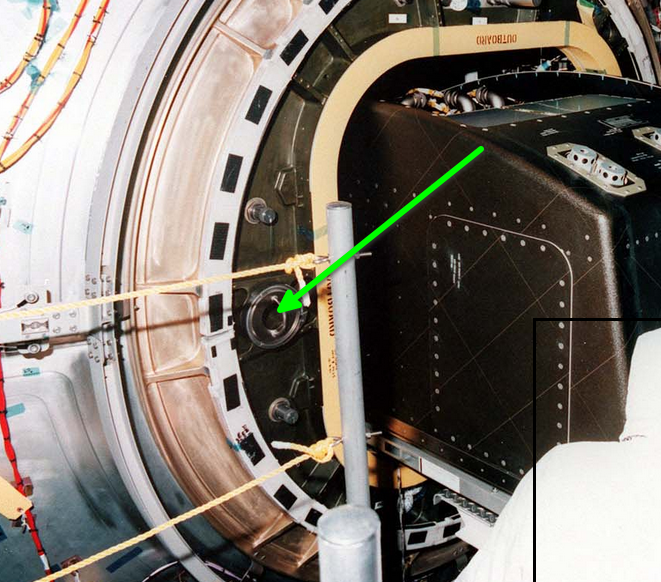I know that the air on the ISS has to be constantly circulated. But how is this ensured? I see some ventilation pipes in the Russian segment, but what does it look like in the American one?
 I found this photo from Columbus and I see some fat pipes at the bottom. Are they from air conditioning? But how are they connected between modules when the docking port looks like this?
I found this photo from Columbus and I see some fat pipes at the bottom. Are they from air conditioning? But how are they connected between modules when the docking port looks like this?

1 Answer
The Intermodule Ventilation (IMV) system
A final component of the atmospheric control system is the Intermodular Ventilation (IMV) shown in Figure 4 for Node 2. The IMV system is basically a bunch of air ducts plumbed around the USOS to exchange air between modules, thus allowing for good mixing. It is critical to mix the O2 generated by the OGA; this will allow the crew to breathe and will prevent pockets of toxic CO2 from forming, as noted above. Fans push the air between modules through the ducts, whereas intramodular air circulation occurs within the individual modules via the cabin fan or CCAAs. The IMV system can recirculate all the air inside the ISS in about 2-3 hours. In the case of a fire or chemical spill, IMV fans are shut off and IMV valves actually close to prevent further mixing of anything bad throughout the vehicle. The hatch can be closed to completely isolate a module in the event of a serious emergency. The pressure on both sides of the hatch needs to be the same when opened; otherwise, the crew will be unable to move it. Even a pressure differential of only 0.3% of that at sea level—a differential too small for a human to detect—can make it impossible to open a hatch because the hatch area is so large. Therefore, Manual Pressure Equalization Valves (MPEVs) are located on the hatches to allow the air to balance out before opening the hatch. An example of the IMV system is shown in Figure 4.
Source: The International Space Station - Operating an Outpost in the New Frontier page 339
A somewhat simpler schematic showing the IMV connections to Node 2.
Finally, this photo of a Multi-Purpose Logistics Module (MPLM) endcone shows where the ducts attach between modules (annotations mine).
You can also see one of these connectors in the 2nd picture in the question in the left side of the black circular region around the hatch, between the two yellow safety ropes.
Acronymology:
- CCAA Common Cabin Air Assembly
- COL Columbus (module)
- JEM Japanese Experiment Module
- OGA Oxygen Generator Assembly
- PMA Pressurized Mating Adapter
- USOS United States Orbital Segment
- VV Visiting Vehicle



